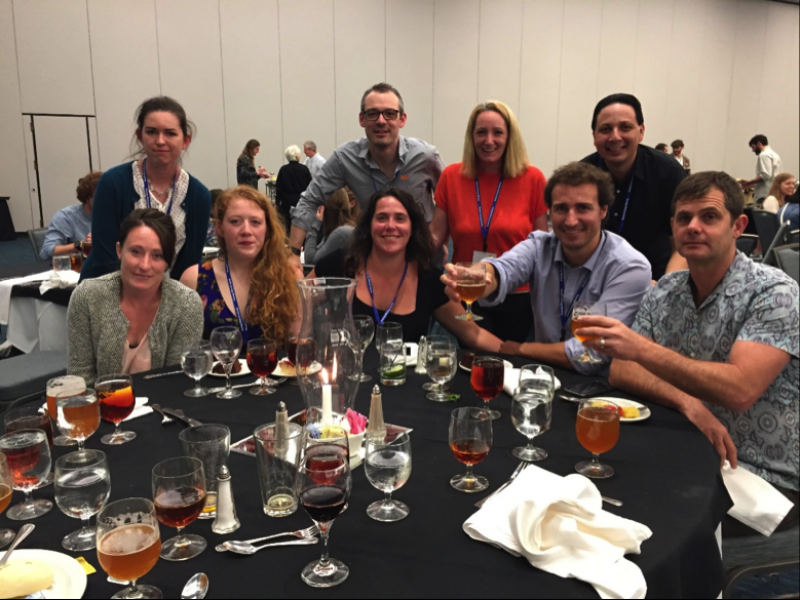46th Annual Benthic Ecology Meeting: USA
Katie O’Shaughnessy
Plymouth University

The 46th Annual Benthic Ecology Meeting (BEM) in Myrtle Beach, South Carolina, USA was a busy and information-packed 4 days covering topics under the theme, “Sustainable oceans in theory and practice." This year, topics ranged from living shorelines using oysters and cordgrass to chemical ecology of corals and sponges. Additionally, there were panel presentations from top ecologists, a “Careers and Coffee” networking session and of course the traditional “Beneath the Waves Film Festival”. I was fortunate enough to not only attend the conference, but also give an oral and poster presentation on my current and past research. This was only possible because of the generous funding by the Challenger Society for Marine Science.
The BEM is traditionally held at a university along the eastern seaboard of the United States every spring, and is the premier conference for domestic and international students and early career researchers to exchange ideas and practice feeling comfortable presenting to a large audience. A panel of professionals judged all student presentations, and constructive feedback was shared with presenters at the end of the conference.
My oral presentation was titled: “Eco-engineering of coastal infrastructure: a design for life,” and focused on my PhD research to date in Plymouth Sound. I generated much interest in the topic both during the Q&A session and afterwards throughout the remainder of the meeting. My poster presentation was titled: “Ecosystem restoration along the Grand Strand, South Carolina: the Coastal Oyster and Recycling and Restoration Initiative (CORRI),” which summed up much of the work I did with oyster reef restoration techniques in South Carolina.
Most valuable to me were the connections I made, both old and new. I completed my master’s degree in Myrtle Beach, SC, and thus have many professional and personal contacts in the area. It was exciting for me to share my work as a PhD student with old colleagues, as it is important for scientists in similar fields to stay abreast with each other’s research and aims. I walked away from the conference knowing that I contributed knowledge, and maintained and formed links across the ocean.
I want to personally say a very genuine “thank you” to the Challenger Society for making this opportunity a reality for me.
Profile:
2nd year PhD student, School of Biological and Marine Sciences, Plymouth University.
Title of PhD: “Ecological engineering of coastal infrastructure: a design for life.”
Latest News
Royal Society Publishing Photography Competition 2025
Please see a message from the Royal Society below:
We are delighted to announce that the 2025 Competition is now open for entries until 15 August for a chance to win £1000! The competition celebrates the power of photography in conveying the wonder of science happening all around us and photographs can be submitted in the categories of: Astronomy, Behaviour, Earth Science and Climatology, Ecology and Environmental Science, and Microimaging.
The competition is free to enter and open to anyone studying or working in science at graduate level or above. Category winners will receive a one-year membership to the Royal Photographic Society and the overall winner will receive a grand prize of £1,000. Find out more: https://bit.ly/RSPphotocomp
October 2025 MEDIN Workshop: Marine Data Management, Governance and the MEDIN toolset
The Marine Environmental Data and Information Network (MEDIN) are pleased to announce that registration is now open for the next occurrence of our popular free online training workshop: ‘Marine Data Management, Governance and the MEDIN toolset’ on the 13th – 17th October 2025 on OceanTeacher Global Academy.
Marine Data Management, Governance and the MEDIN toolset
The Marine Environmental Data and Information Network (MEDIN) and OceanWise are delighted to invite you to attend our popular free online training workshop: ‘Marine Data Management, Governance and the MEDIN toolset’ on the 19th – 23rd of May 2025.
